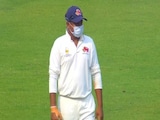Building muscle is not just about lifting heavy weights or spending hours at the gym. It is about your whole lifestyle – how you sleep, eat, move and recover. Even if you hit the gym hard, without the right support outside, gains can be slow or short-lived. Think of it this way: muscles grow when your body is happy, rested and fueled properly. Sleep, food and consistent training all play a role. Small lifestyle habits can make a big difference over time.
On Tuesday, lifestyle coach Luke Coutinho dropped an Instagram post breaking down exactly what matters beyond training. Here is the breakdown:
1. Sleep
Muscles do not grow in the gym – they grow when you rest. During deep sleep, your body releases growth hormone and fixes tiny tears caused by training. Without 7–9 hours of quality sleep, your recovery slows down. Luke suggests creating a calm bedtime routine, keeping your room cool and dark and avoiding screens before bed.
2. Protein
Protein is the foundation of repair. Your body cannot store it like carbs or fats, so spread your intake across the day. Good sources include chicken, fish, eggs, paneer, lentils, beans, soy and tempeh. Balance animal and plant proteins to get a mix of amino acids.
3. Carbohydrates
Carbs are essential for energy and to prevent protein from being used as fuel. Smart choices are rice, quinoa, oats and sweet potato. Timing matters too – eat carbs before and after training to boost performance and recovery.
4. Resistance Training
Focus on progressive overload – gradually increase weights, reps, or intensity. Compound lifts like squats, deadlifts, presses and pull-ups work multiple muscles and give the best growth.
5. Consistency
Show up! Track workouts and food intake gently, without overthinking. Celebrate small wins. Progress, not perfection, is what builds lasting results.
The takeaway? Sustainable muscle growth = training + balanced nutrition + recovery + lifestyle. Miss one pillar, and the results slow down.
Disclaimer: This content including advice provides generic information only. It is in no way a substitute for a qualified medical opinion. Always consult a specialist or your doctor for more information. NDTV does not claim responsibility for this information.















